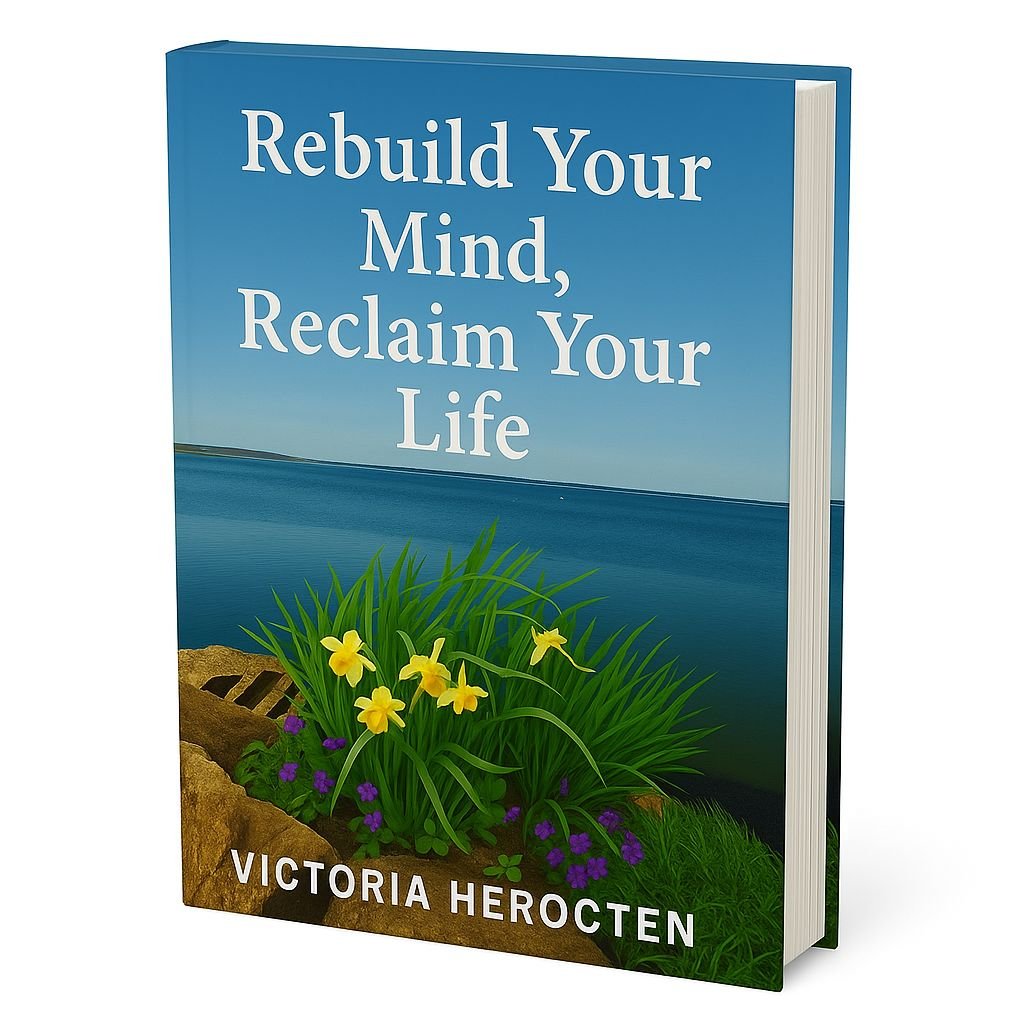You have already discovered the destructive beliefs that can silently dictate the lives of middle-aged women in toxic family environments. Here in Part 3, we’ll look at three more, which come with their own emotional cost — and each can be replaced with a healthier, more empowering truth.

Each destructive belief will be illustrated by a short story of a woman who became locked in a toxic relationship, usually with family. You will also discover the impact and long-term consequences of a given belief.
“At Awaken Happy Life, we guide middle-aged women on a holistic journey to break free from limitations and grow into powerful, confident selves.”
Destructive Belief #1:
“Parents should sacrifice their lives for their children.”
It’s probably one of the most destructive beliefs, which is natural for parents to prioritise their children’s needs in the early years—providing safety, care, and guidance. But in toxic families, this belief is often weaponised.
Parents present their sacrifices as a lifelong debt their children must repay, creating an emotional leash that can extend well into adulthood. This mindset fosters guilt, blurs boundaries, and teaches adult children that they owe their parents their time, money, and loyalty—no matter how unreasonable the demands.
Destructive Story
Fiona, 53, has heard her mother say countless times, “I gave up everything for you.” It’s repeated so often that Fiona has internalised it as truth. When her mother calls at inconvenient times or demands help with non-urgent tasks, Fiona drops everything—even cancelling plans that matter to her. She avoids pursuing hobbies or trips if they might take her away for too long, fearing she’ll be seen as ungrateful. In her mind, every personal choice is measured against the debt she “owes.”
Impact
Fiona struggles to put her own needs first. Even small acts, like spending an afternoon reading or meeting friends, feel like betrayal. This constant guilt drains her energy and limits her ability to enjoy her own life.
Long-Term Consequences
If Fiona doesn’t challenge this belief, she risks living out her years on someone else’s terms. She will lose touch with her dreams, miss opportunities for personal growth, and potentially resent her mother—damaging the relationship she’s trying to preserve.
Destructive Belief #2:
“I am a bad daughter if I leave or set boundaries.”
The second of the destructive beliefs analysed today is rooted in guilt and enmeshment. It equates independence with abandonment, making autonomy feel like a moral failure. In toxic families, it’s reinforced by comments that shame adult children for creating physical or emotional distance. Over time, this keeps women tethered to unhealthy dynamics, afraid to live their own lives.
Destructive Story
Rachel, 47, has been offered a promotion in another city that aligns perfectly with her career goals. But when she tells her parents, they accuse her of “abandoning them” and hint that she’s selfish. Feeling torn, Rachel turns down the offer. She stays in her hometown, continuing weekly visits and errands for her parents, but quietly resents the life she’s living. Each year, she watches opportunities pass by while convincing herself she’s doing “the right thing.”
Impact
Rachel experiences chronic dissatisfaction and growing resentment. Her frustration spills over into other relationships, creating distance from friends and partners who encourage her to pursue her dreams.
Long-Term Consequences
If Rachel keeps this belief, she may spend decades in a life she never truly chose. The unfulfilled potential will weigh heavily, and she risks entering later life with deep regret for opportunities lost—not because she couldn’t take them, but because she didn’t believe she was allowed to.
January Sale!
Start 2026 with a new, healed self, able to build happy relationships. Now at a much lower price.

Destructive Belief #3:
“Expressing my emotions will worsen things or create drama.”
Another example of destructive beliefs. In many toxic families, expressing feelings is discouraged, mocked, or punished. Over time, women learn to silence themselves to avoid backlash, criticism, or dismissal. This belief doesn’t just suppress anger or sadness—it suppresses the ability to communicate needs, resolve conflicts, and form deep connections.
Destructive Story
Linda, 51, has learned to bite her tongue when her parents say hurtful things. She fears that speaking up will lead to ridicule or explosive arguments. Instead, she swallows her emotions, putting on a neutral face during family gatherings. Later, she cries alone or vents in private journals. Her family sees her as “easygoing,” unaware that she’s carrying years of unspoken hurt. This pattern repeats in friendships and romantic relationships, where she avoids addressing issues until the tension becomes unbearable.
Impact
Linda struggles to communicate openly, leading to frequent misunderstandings. She feels invisible and unheard, as though her emotions don’t matter. The stress of constant suppression leaves her tense and drained.
Long-Term Consequences
If Linda doesn’t break this habit, she risks chronic stress, anxiety, and even stress-related health issues. Her relationships may remain surface-level, lacking the trust and intimacy that come from honest emotional exchange. In later years, she may feel she never truly showed up as herself in her most important connections.
Check all articles about toxic beliefs:
Not sure how to change these beliefs? My free e-book “Heal The Beliefs that Hurt You” offers practical steps to start shifting them. You can begin creating boundaries, reclaiming your time, and living by your own values.
Closing Thoughts
These destructive beliefs may feel like part of your identity, but they’re learned — and learned patterns can be replaced. It starts with awareness, and it grows with consistent action toward healthier ways of thinking and relating.
Victoria Herocten
Gentle Reminder:
All the guidance and resources shared here are created to inspire growth, reflection, and empowerment. They are not a substitute for medical, psychological, legal, or financial advice. Each person’s path is unique, and results will naturally vary. Please seek professional support when it comes to your health, finances, or personal circumstances. By engaging with this content, you honour your own responsibility for your choices and wellbeing.


